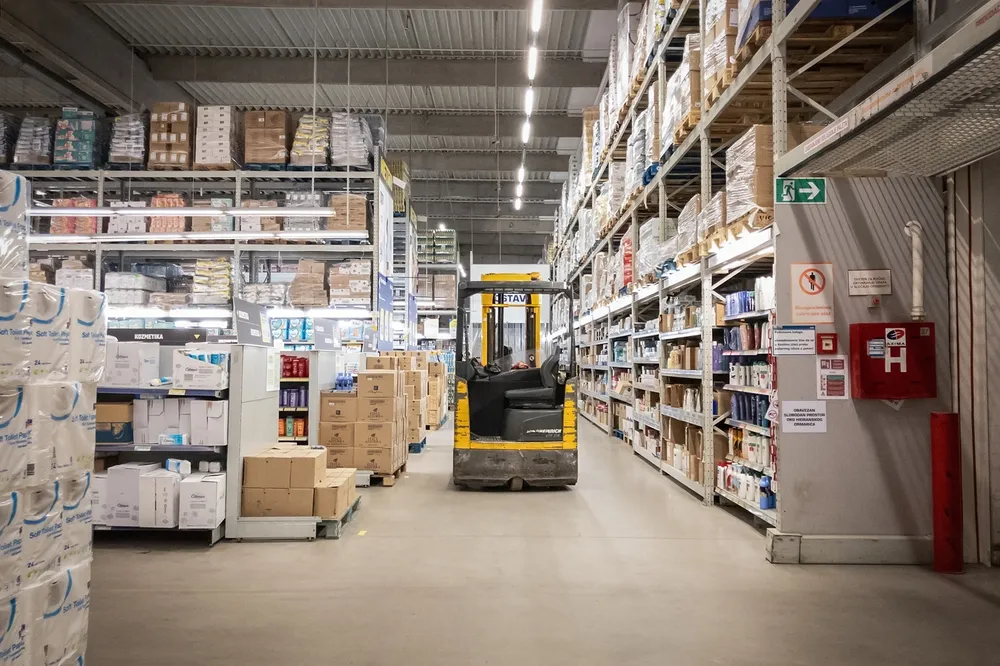Logistics, Retail Management, and Supply Chain Optimization Course
Introduction
Logistics, retail, and supply chain management are essential components driving the global economy in today’s interconnected world, defining how businesses operate and thrive. Logistics coordinates the movement and storage of goods, ensuring smooth processes from initial supply to the final consumer. Retail management focuses on customer interactions, sales strategies, and service in both physical stores and digital environments. Supply chain management integrates these functions, overseeing the flow of materials, information, and financial resources across suppliers, manufacturers, distributors, and retailers.
This comprehensive course delves into the theory and practice of logistics, retail, and supply chain management, preparing learners to tackle complexities and drive efficiency in a dynamic business environment.
Objectives
Upon completing this course, participants will be able to:
- Identify and explain central theories and concepts in logistics, retail, and supply chain management.
- Evaluate and enhance logistics activities for improved efficiency and cost-effectiveness.
- Implement retail management strategies to boost customer satisfaction and sales.
- Integrate and manage supply chain functions to ensure operational effectiveness.
- Utilize logistics and supply chain technologies to improve process clarity and decision-making.
- Develop skills in demand forecasting, inventory control, and procurement.
- Implement sustainable practices and green logistics within supply chain protocols.
- Apply quality management techniques to ensure product and service reliability.
- Assess performance metrics and engage in continuous improvement within logistics and retail operations.
- Navigate global supply chains and understand regulatory frameworks.
Training Methodology
- Case Studies
- Simulations
- Workshops
- Group Discussions
- Role-Playing
- Technology Demonstrations
Course Outline
Unit 1: Introduction to Logistics, Retail, and Supply Chain Management
- Explanation of logistics, retailing, and supply chains
- Historical evolution and background of logistics and supply chain strategies
- Role of logistics and strategies in current industrial environments
- Key players in supply chain management
- Impact of supply chain technologies
Unit 2: Logistics Operations and Management
- Fundamentals of logistics
- Classification of transport modes
- Warehouse management and stock control
- Packing and materials handling systems
- Freight forwarding and distribution methods
- Reverse logistics and environmental considerations
Unit 3: Retail Management Strategies
- Customer behavior analysis in retailing
- Store design, merchandising, and pricing strategies
- Promotional strategies and customer service excellence
- Dual-channel markets and technological impacts
- Inventory types and stock controls in retail
Unit 4: Integration and Collaboration within the Supply Chain
- Supplier management and Supplier Relationship Management (SRM)
- Demand forecasting methods and error evaluation
- Production planning and scheduling
- Order fulfillment and logistics integration
- JIT systems and lean supply chain strategies
Unit 5: Supply Chain Technologies and Innovation
- Modern technology in logistics and supply chains
- Autonomous storage systems and robotics
- Internet of Things (IoT) applications and supply chain monitoring
- Blockchain technology for transparency
- Information analytics and cloud-based systems
Unit 6: Quality Management and Continuous Improvement
- Total quality management processes
- Six Sigma and process adjustments
- Root cause analysis and corrective actions
- Supplier performance management
- Continuous improvement methods (Kaizen, PDCA)
- Benchmarking and best practices
Unit 7: Managing Complexity in the Global Supply Chain
- Challenges and opportunities in global supply chains
- International trade stability and regulations
- Cultural variables in global logistics and retail
- Risk management and contingency planning
- Outsourcing and offshoring strategies
- Multinational logistics network management
Unit 8: Sustainable Logistics and Future Forecasting
- Eco-friendly supply chain practices and green logistics
- Environmental impact measurement and carbon footprint reduction
- Regenerative circular economy and waste management
- Future trends in logistics virtualization and automation
- Adaptation of supply chain strategies to uncertainty
- Innovation in retail logistics and customer experience


















